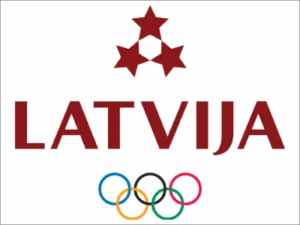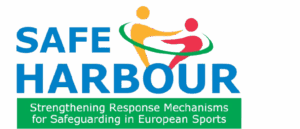The Latvian Olympic Committee (NOC Latvia) is pleased to be a partner in the new Erasmus+ Project named “Strengthening Response Mechanism for Safeguarding in European Sports” (SAFE HARBOUR), which is coordinated by the European Olympic Committees EU Office (EOC EU Office). This initiative is dedicated to enhancing safeguarding mechanisms across European sport, creating safer environments for all.
About NOC Latvia

NOC Latvia is a non-profit organization affiliated to the International Olympic Committee (IOC), bound by the principles enunciated in the Olympic Charter and acting in accordance with the NOC Latvia’s Statue and the Law on Sport of the Republic of Latvia.
NOC Latvia is one of sport organisation in Latvia which has undertaken the leading role in defending the autonomy of sport and in promoting the interests of sport with public authorities, as well as sport and other non-governmental organisations and the media.
In conformity with the Latvian legislation, NOC Latvia:
NOC Latvia participates in:
SAFE SPORT is one of the top priorities of the Latvian Olympic Committee. It is vital to create an environment where everyone is aware and knows that a trusted person or staff member is nearby, with whom they can discuss any problem.
Participation in the SAFE HARBOUR project is very important for NOC Latvia and the entire sports system. A respectful, trustworthy, friendly, and safe environment is one of the key prerequisites for everyone involved in sports – children, youth, adults, grassroots sports, and high-performance sports – to have a fulfilling space where they can develop, improve, and demonstrate their abilities.
Work is underway on a new Sports Law, regulatory acts, and an action protocol for safe sport, with the aim of ensuring an environment where any form of undesirable behavior, violence, harassment, bullying, abuse, or any other inappropriate conduct is eliminated.
The work on developing the action plan is taking place in two directions: Education – an educated and informed society and Action – response in cases of misconduct or violations.
Identify, notice and speak.
The role of NOC Latva within the SAFE HARBOUR project
Within the SAFE HARBOUR project, NOC Latvia will play a critical role in tailoring the European Response framework to its national context. Responsibilities include drafting a National Strategy to guide safeguarding actions, delivering mandatory training for the leadership and National Federations, and hosting a National Multiplier Event to raise awareness among stakeholders. Additionally, NOC Latvia will engage in peer-to-peer roundtables, contribute to thematic seminars, and disseminate the project results through various channels. By actively participating in all project activities, NOC Latvia will help ensure the successful implementation and sustainability of safeguarding measures.
Background information on the SAFE HARBOUR project
The SAFE HARBOUR project, short for “Strengthening Response Mechanisms for Safeguarding in European Sport”, is a 30-month project co-funded by the European Union through the Erasmus+ Sport Programme 2024. Coordinated by the EOC EU Office, the consortium includes Thomas More and Asser Institute as experts on safeguarding, human rights and law, 2 International Federations (International Biathlon Union and International Ice Hockey Federations), and 20 National Olympic Committees (Belgium, Bosnia and Herzegovina, Croatia, Cyprus, Czechia, Denmark, Germany, Hungary, Kosovo, Latvia, Lithuania, Luxembourg, Malta, Montenegro, Norway, Poland, Portugal, Romania, Slovakia and Slovenia). Additionally, the International Olympic Committee (IOC) is involved as an outside resource.
The project seeks to strengthen the capacity of European NOCs and Federations to address safeguarding concerns by identifying gaps, developing a European Response framework, and fostering collaboration. This framework will be adapted to national contexts, complemented by training and awareness initiatives to enhance safeguarding measures at both national and European levels. Therefore, SAFE HARBOUR aims to equip partner NOCs and Federations with the tools and confidence to implement effective safeguarding measures while establishing a robust support network for Safeguarding Officers and laying the groundwork for a future IOC Regional Safeguarding Hub.

![]()